Thinking about taking caffeine before your workout — or should you go for a full-blown pre-workout supplement? You’re not alone.
As a fitness coach who’s tried and tested both for over a decade, I get this question all the time:
Which one gives better energy, focus, and real results in the gym?
In this guide, I’ll break down the science, share my personal experiences with clients, and help you decide whether caffeine or pre-workout is the smarter choice for your fitness goals.
No hype. No BS. Just real-world insight backed by training floors and science.
Table of contents
Is Caffeine Better Than Pre-Workout?
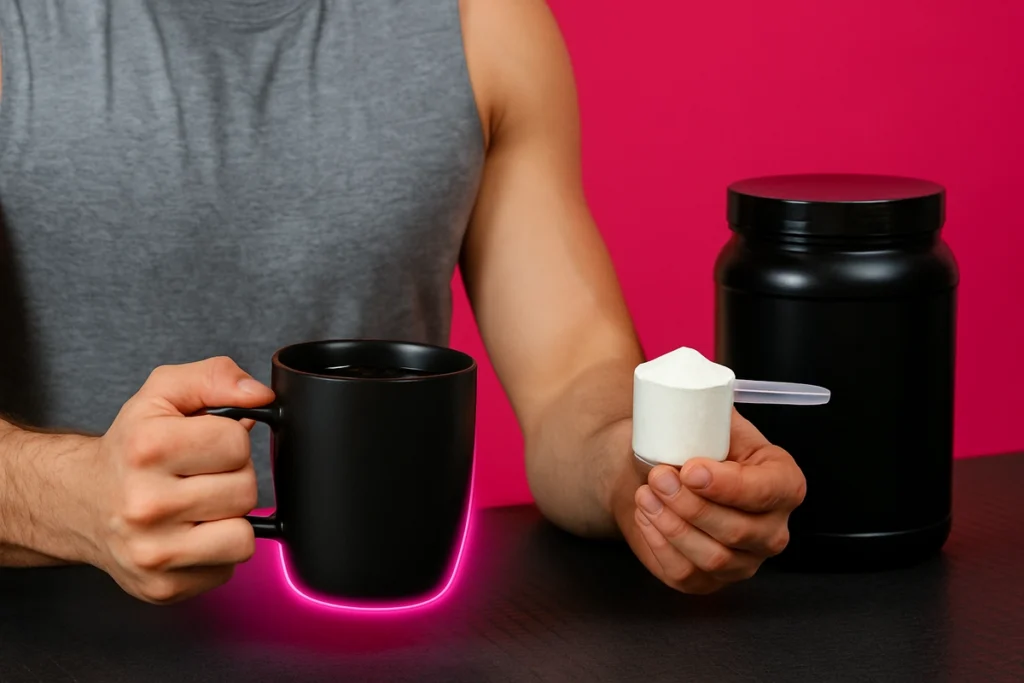
Caffeine alone is powerful, affordable, and works for most people—especially if you’re just starting out or training fasted.
But if you’re chasing max performance, chasing the pump, or need an all-in-one formula during cutting or strength blocks, a good pre-workout supplement can help push you further.
What’s in Your Cup? (Caffeine Only)
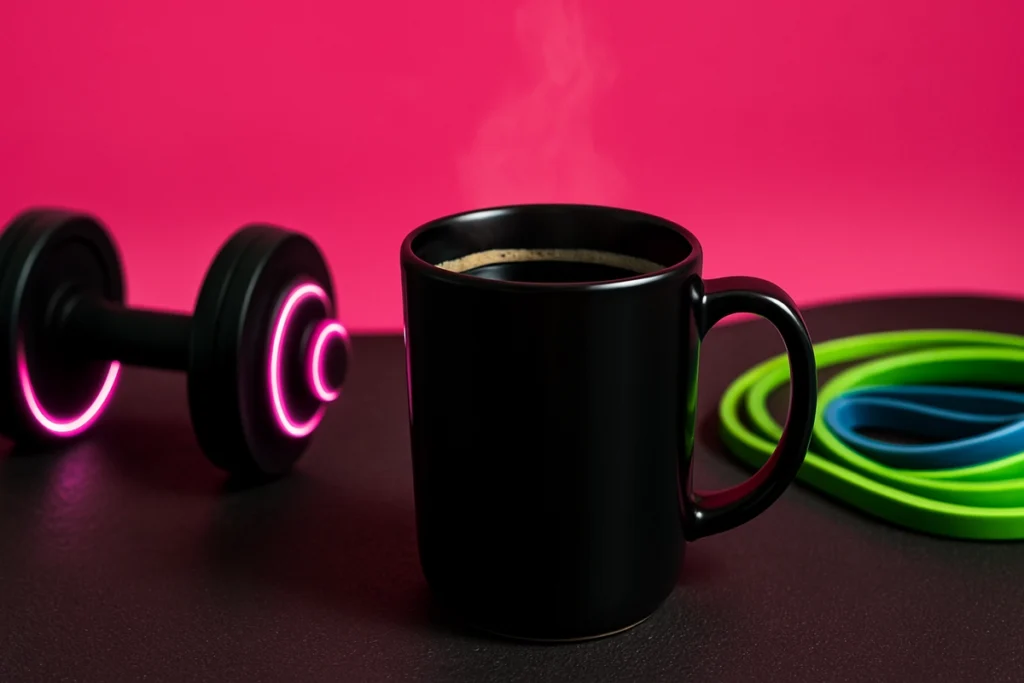
Caffeine—whether from black coffee or a simple pill—can be a game-changer.
It boosts:
- Mental focus
- Physical energy
- Fat oxidation during training
I usually go with 200mg caffeine pills or just a cup of strong coffee when I train early or during cutting. It’s clean, predictable, and doesn’t come with any tingles, crashes, or sugar.
- Why it works: It’s direct stimulation without the extras.
- Best for: Morning fasted workouts, beginners, budget-friendly routines.
What’s in a Pre-Workout Supplement?
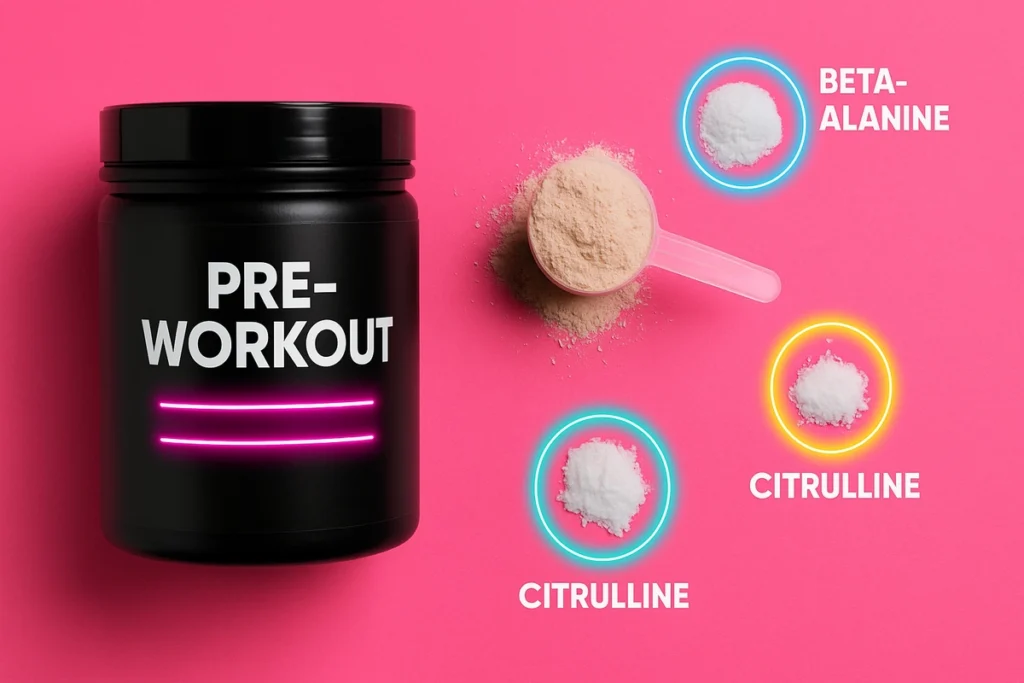
Most pre-workouts are more than just caffeine. A well-formulated one often includes:
- Caffeine (stim energy)
- Beta-Alanine (endurance boost)
- Citrulline Malate (pump and blood flow)
- Creatine Monohydrate (power output)
- Tyrosine or Theanine (focus and calm)
I don’t use them all the time—but during intense hypertrophy blocks or when I’m coaching clients through performance peaks, they can make a big difference.
Trainer’s Experience: What I Recommend to My Clients
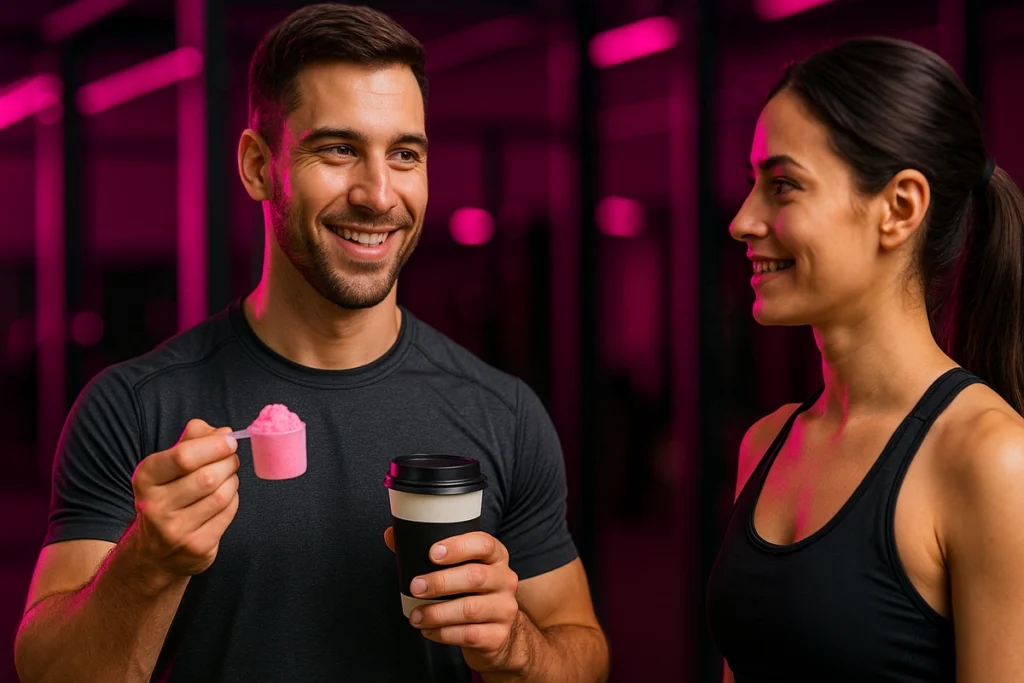
Let me be real: what works for me isn’t always what works for you. I adjust recommendations based on lifestyle and training level.
🟢 For instance, Lucas, a 29-year-old client from Germany, came to me feeling anxious and jittery after his pre-workout. We simplified his stack—just 200mg caffeine and 3g creatine—and in 2 weeks he was lifting more consistently and feeling better mentally.
🟢 On the other hand, Ayesha, a busy mom and fitness lover from Dubai, needed help getting through early fasted cardio. A 150mg caffeine pill before training helped her burn fat efficiently without the need for sugary energy drinks.
Side Effects and Tolerance Build-Up

Pre-workouts can hit hard—but they can also hit wrong.
I’ve seen clients deal with:
- Sleep issues
- Energy crashes
- Stim tolerance buildup
One of my clients, Carlos from Brazil, once took a double scoop “for fun” and ended up feeling dizzy mid-leg day. Since then, we stick to single-ingredient supplements for better control.
My advice? Start low, go slow. Never jump into full scoops if you’re new.
Which One Should You Use?
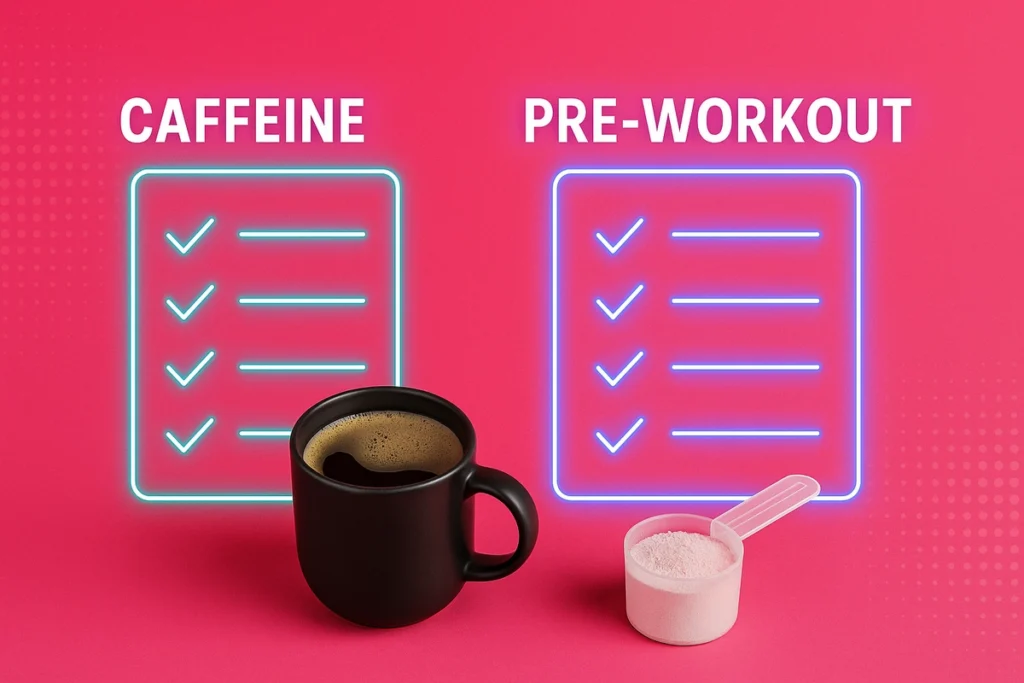
Let’s simplify the choice based on your goals:
Goal | Best Choice |
|---|---|
Beginner | Caffeine-only |
Fat-loss (especially fasted) | Caffeine-only |
Muscle building | Pre-workout (with pump agents) |
Advanced training block | Pre-workout |
Budget-friendly energy | Caffeine pill or black coffee |
If you want clean energy and mental focus without all the fluff—go with caffeine.
If you want the full workout “experience” with tingles, tunnel vision, and major pumps—pre-workout is your friend.
Final Take: My No-BS Advice as a Fitness Coach

I’ve trained for a decade, coached for 6+ years, and tested countless supplement stacks. Here’s my honest take:
- Caffeine-only is underrated. It’s simple, effective, and gives great ROI for most gym-goers.
- Pre-workouts can be awesome—but only if they’re from reputable brands with clear dosages and no shady proprietary blends.
✅ Want my picks?
I trust ProLab Caffeine Pills for simplicity and Legion Pulse or Transparent Labs Bulk for full-spectrum pre-workouts.
Whatever you choose, cycle your usage every 6–8 weeks. Your body needs breaks to reset sensitivity and avoid dependency.
- For dosage tips, check out Caffeine Dosage for Fat Burning and Focus.
- For timing strategies, visit Best Time to Take Caffeine Before a Workout.
Takeaway for Lifters:
Don’t buy into the hype. Know your body. Pick the right tool for your goals—and never confuse more stimulation with better performance.
FAQ
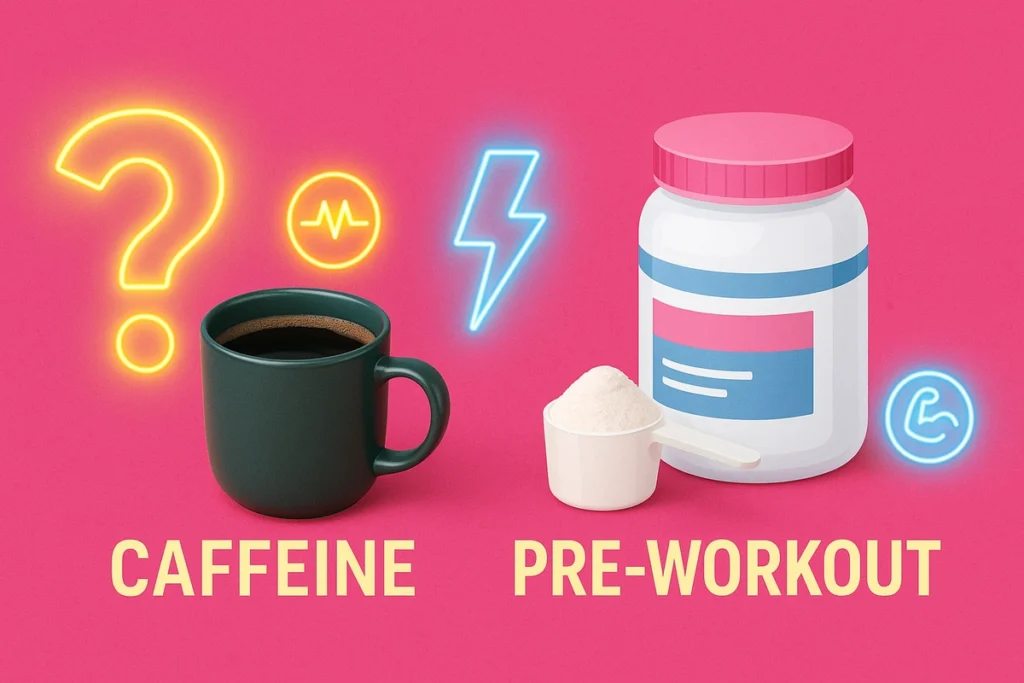
Not recommended—most pre-workouts already contain caffeine, and adding more can lead to overstimulation, anxiety, or heart palpitations. Always check the label and total dosage. Stay under 400mg per day unless advised otherwise.
Yes, caffeine alone can be just as effective, especially when taken before fasted cardio. It enhances fat oxidation and mental focus without the extra ingredients you might not need during a fat-loss phase.
About 30 minutes before training is ideal for both. Caffeine kicks in fast, and pre-workout blends need some digestion time. Avoid taking them late at night to prevent sleep issues.
Common side effects include:
1. Jitters or anxiety (especially from high caffeine doses)
2. Tingling skin (from beta-alanine)
3. Upset stomach (from niacin or artificial sweeteners)
4. Sleep problems if taken late
If you experience these, switch to lower doses or caffeine-only options.
Yes. Your body builds tolerance. I suggest cycling off every 6–8 weeks for 1–2 weeks. During the break, use pump-only formulas or go stim-free to reset your sensitivity.

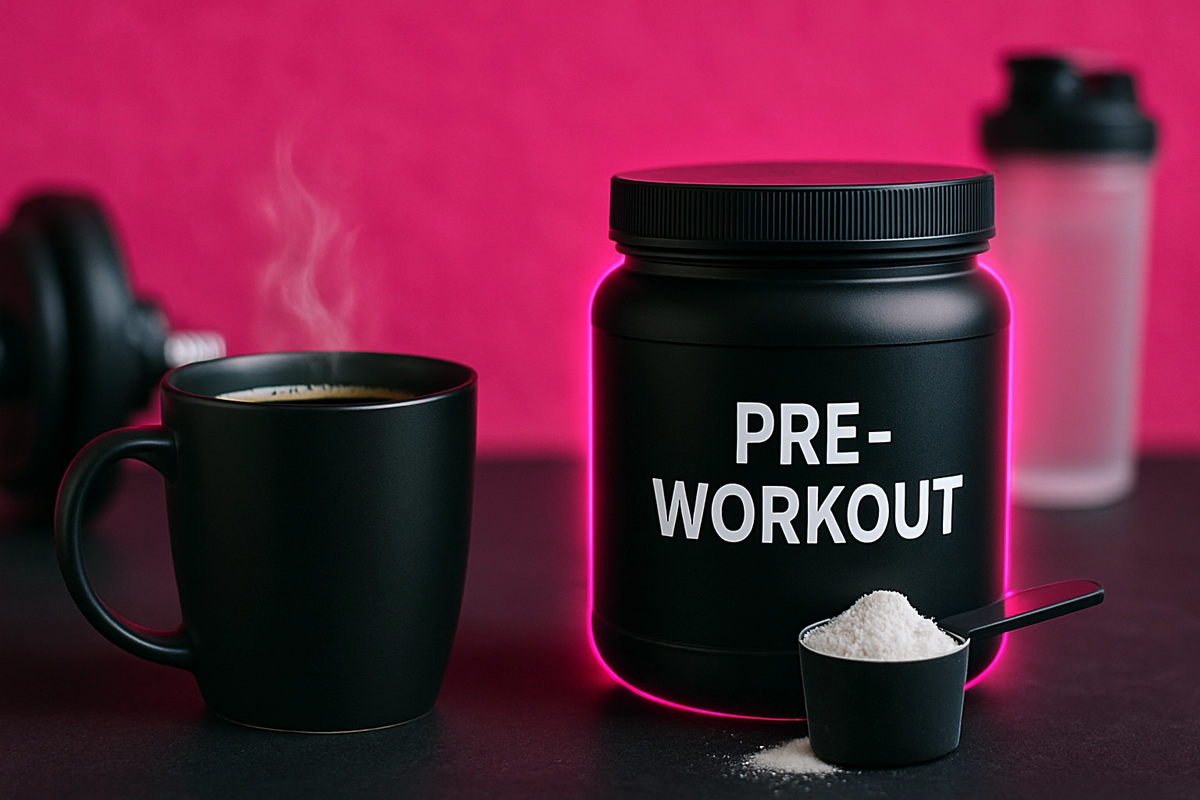

Leave a Reply